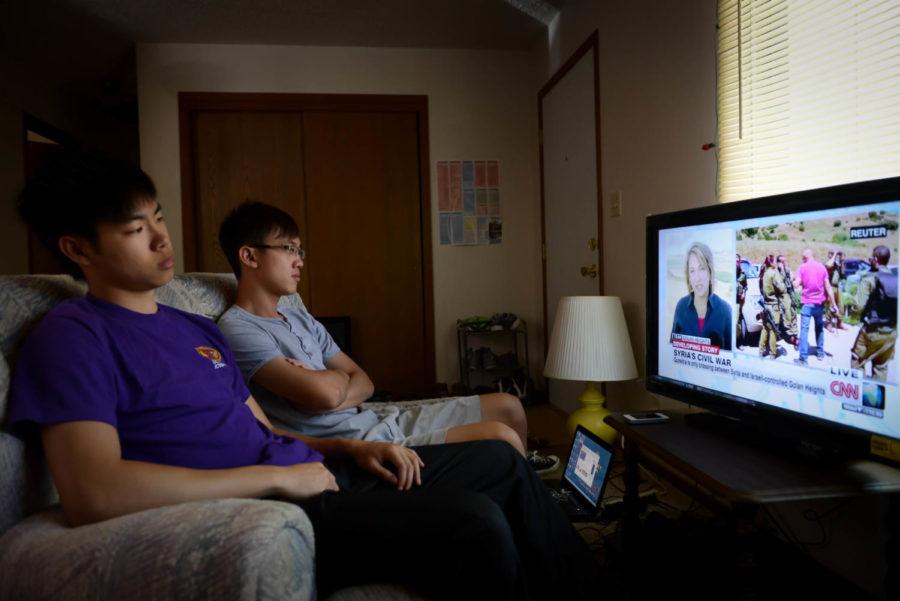Editorial: Don’t let constant conflict desensitize you
Iowa State Students Zi Lang Wong and Christopher Phoon watch coverage of the war in Syria on the news every day.
September 3, 2013
We all remember where we were the morning of Sept. 11, 2001, when four airplanes went down, strategically killing 3,000 Americans and other global citizens. Much of Iowa State’s student body was still on the better half of a decade old but without a doubt the national sentiment was to go and find out who would commit such an atrocity and then go and imprison them, if not kill them.
Americans are now tired of war; as we approach the 12th anniversary to the attack on our soil, Americans have been largely separated from the battles our soldiers have fought in Iraq and Afghanistan, including any conflict in other places of political and civil unrest. Of course, we are aware of the war through what the media tells us and what our soldiers tell us when they come home, but largely, we are disconnected.
This disconnection easily widens when the citizens of our nation don’t need to worry about a draft via the selective service registration that all men ages 18 to 25 are required to sign. With plenty of brave men and women willing to volunteer their lives for the safety and freedom of the United States, most American citizens can have the luxury of not worrying whether or not they’re going to be bombed today or tomorrow.
War lingo — KIA, MIA, POW, death toll, casualties and injured — becomes unfortunate numbers on screens, letters on paper and conversations in coffee shops. After many exhausting years of conflict overseas, having seen or participated in none of it, Americans have become desensitized.
Syria has been in civil war since 2011 when President Bashar al-Assad ordered the quelling of protesters by use of deadly force. In July 2013, the United Nations reported that the Syrian death toll had surpassed 100,000 with over half of those being civilian. Again, these are just numbers to us — but that would be equivalent to leveling half of Des Moines.
With tensions and deaths rising over the past two years, President Barack Obama said the line was just crossed when al-Assad dropped chemical weapons on his own people, killing nearly 1,500 civilians. Maybe justly so, many Americans are crying for Obama to not do anything with Syria — or at least wait for the United Nations to come to a collective decision.
Of course nobody wants war; Obama was elected in part to end war. But we can’t let our disconnection and desensitization effect our opinion of the moral implications of a leader committing genocide through (the feared term) weapons of mass destruction.
Whether or not you have an opinion on America’s potential involvement with Syria, it looks as if our government is leaning toward us getting involved to some extent, pending congressional approval. As a nation, we have a responsibility to keep up with the world’s happenings. We can’t let the lack of a draft, the lack of media and political transparency and excess nationalism desensitize us from the reality of the Syrian conflict and its relation to the United States and global interests.







